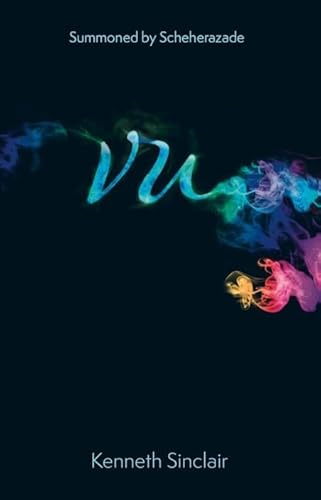Vu
To go back in time and tell 1001 stories to Scheherazade? What storyteller wouldn’t want that on his CV/resumé?
Gabriel is time-travelled, or is it dream-travelled, ‘summoned’ to the captive princess, who inhabits a palace out of time and place. He tells her of the ‘black hulls of the Greeks’ bound for Troy, a star shining over Bethlehem, Chuang Tzu painting a crab, Taliesin speaking bardic riddles, Abelard and Héloïse continuing their chaste love, the corpse of Genghis Khan carried across the desolate steppes, Marco Polo following the silk route, Boccaccio writing the Decameron. The princess sometimes joins in the storytelling: the philosopher Averröes discussing eternity with his Almohad prince, perfume ‘drifting over the rose gardens of Shiraz’, Mansa Musa carrying gold to Mecca on a hundred camels. They take each other on a magic carpet ride, plucking up all the beauties history has to offer.
I’ve never seen a book like this. The words are so beautiful, so image-rich, a cornucopia for the senses, that they are almost poetry, gorgeous metaphor-filled erudite references to literary and artistic wonders. No chapter is one complete story, nor the complete story of one night with the princess, but rather a tangle of images—like dreams. Every paragraph is a jewel, an ‘iridescent text that causes others… to quiver a little’. They flit like butterflies, never quite anchored, like Japanese tanka court poetry, little bubbles linked not so much by narrative but by theme or emotive effect.
Reading 280 pages with no plot structure and ‘almost no subject… only form, only style’ can be exhausting, but there is some thematic succession to the stories, and there are fleeting moments between Gabriel and the princess.
A peacock screams, the princess turns her ring, birds fly through, and history begins a new day.










